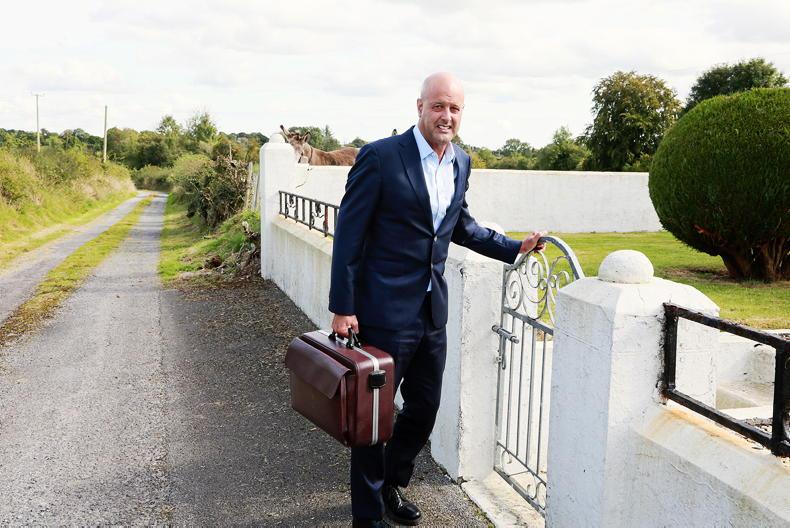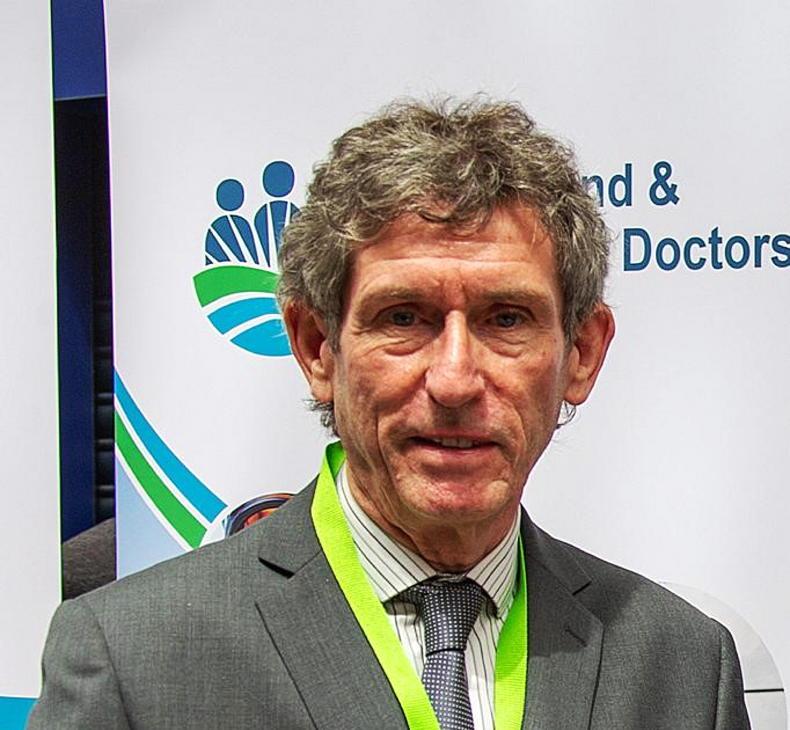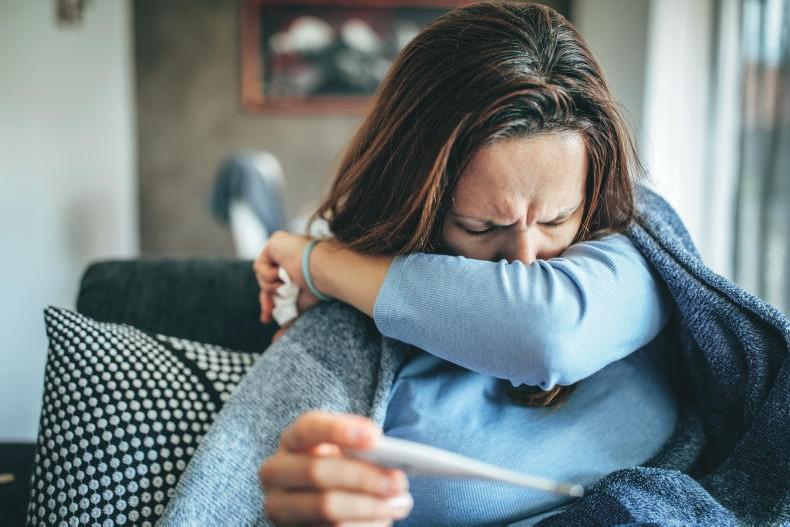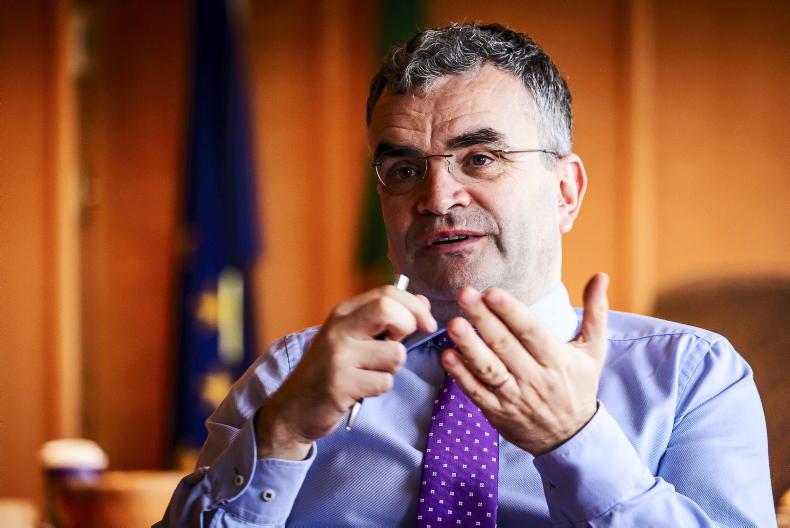“We’re staring into an abyss if action isn’t taken.”
That’s a statement from Galway GP Dr Martin Daly, board member and former president of the Irish Medical Organisation (IMO).
With the HSE predicting a shortage of between 493 and 1,380 GPs by 2025 – only three years away – the time has come to bite the GP recruitment/retention bullet in the land of GPs in order to ensure equal medical care for those living in rural Ireland.
With patients and doctors experiencing difficulties at present, an ageing population and many GPs due to retire, what should be done?
Next week we’ll ask the Minister for Health what’s planned and what’s possible, but in the meantime, back to the abyss.
“At the moment we are staring into one,” says Dr Daly. “I sit on interview boards and we are simply not getting any applicants for GMS [medical card] posts in the west of Ireland.
“The general public is used to having a GP in their village or town but if posts aren’t filled, they are going to have to travel further and compromise in terms of the continuity of care they can expect from a general practice in the future.”
He mentions several examples including Dunmore in Co Galway where a doctor retired and the HSE had to interview for it three times. Eventually the contract has been taken up by another doctor in Ballindine so Dunmore no longer has a full-time GP.

He also mentions vacancies in Kilconnell in Co Galway and Castlebar in Co Mayo.
“Even towns that have been used to having two or three practices are going to have less unless there is a real reconsideration about how services are provided in rural areas especially. The recruitment/retention crisis has now spread beyond rural practice into the bigger towns as well.”
Here are 20 solutions suggested during a series of interviews with doctors’ and patient organisations as part of a blueprint for rural health care:
1 Train more GPs
We have approximately 3,500 at present. While numbers trained have increased 70% since 2015 (150 that year to 258 this year) this will not meet demand. With 700 GPs due to retire, the HSE predicts a shortage of between 493 and 1,380 GPs by 2025 and 2,000 by 2029.
2 Recruit more GPs
Recruit more GPs overseas in EU and non-EU countries with similar training models.
3 Make it attractive
Make it attractive for trained GPs who have left the workforce to return.
4 Training
Fund a new undergraduate medical programme dedicated to producing graduates who have the skills, attitudes and desire to work in rural and remote locations, with exposure to rural practice maximised during training.
5 Clear the path
Remove any obstacles to training more GPs, especially in hospital training posts.
6 Scholarships
Entice graduates into rural general practice by offering scholarships to medical students from rural areas who are likely to settle in rural areas.
7 Politics
Establish a high-level ministerial working group on the future of general practice. This is to agree innovative short-term and medium-term solutions to the growing GP workload and workforce crisis. “Rural-proof” policies, strategies, plans, programmes and financing modalities to ensure an equal standard of care for rural people.
8 Improve the GP contract
Doctors are still signing up for a 24-hour, 365-day a year commitment to the HSE and the State to a named number of patients. This is considered a barrier to accepting rural posts when locum cover isn’t very available and is expensive. “It doesn’t reflect the aspirations and requirements of the modern young GP who wants more of a work-life balance,” says Dr Daly. Guaranteed parental leaves and family friendly workplaces should be a minimum requirement for a rural healthcare practice. (Proposal from the Irish College of General Practitioners (ICGP))
9 Cover
Improve the out-of-hours system by providing more locums so that GPs can take sick leave, holiday leave, study leave and maternity leave when necessary and get “red eye” cover. This is particularly important as 56% of GP trainees are now female. Many urban doctors don’t have to participate in out-of-hours rosters at all.
10 Locum bureau
HSE should run a locum bureau rather than contracting out the work to locum agencies who get a commission (adding to the cost of this service to the State).
11 Virtual campus
Set up a dedicated rural GP “virtual campus” to support rural GPs, meeting online and working in partnership with rural communities and universities.
12 Support clusters
Make rural practice more attractive by supporting solo GP practitioners to stay in rural Ireland with a system of shared equipment grants, appointments, GP partnerships and clusters (three or four rural GPs sharing admin staff and diagnostic facilities) and offering fellowship positions (funded GPs who do research and work part-time). (Proposal from the Rural Island and Dispensary Doctors of Ireland (RIDDI))
13 A HSE-led succession policy
We need a more problem-sensing culture with the patient at the centre. You look at where there are going to be problems with supply and plan early to fill the posts. (Proposal from the Irish Patients’ Association)
14 Paramedic work
Pay rural GPs more for paramedic work like suturing, ECGs, attending road traffic accidents (and provide the equipment they require like oxygen tanks). Rural GPs are obliged to attend accidents if requested by the ambulance service. Distance code payments, which have been cut, are also an issue.
15 Resources
The HSE should offer salaried GP posts where posts are unfilled and provide premises and staff (perhaps in a community centre) and also provide premises free in areas where the patient list is small. “The cost of setting up a practice intimidates young people – premises, equipment and then waiting for your first patient.” (Proposal from the IMO)

16 Pharmacists
Let pharmacists take a greater role (eg running a minor ailment scheme for GMS patients e.g. 24 hour blood pressure monitoring and contraceptive clinics). (Proposal from the Irish Pharmacists’ Union)
17 Tele-health
Rely more on tele-health (digital doctor service) to deal with minor issues particularly. “We must factor in the huge benefits of digital health. Not remembering this [given all we’ve learned during the pandemic] would be like planning roads for horses and carts after the car has been invented,” says Stephen McMahon of the Irish Patients Association. Investment in rural healthcare built infrastructure should include innovative technological solutions to enhance face-to-face services. (Proposal from the Irish Patients’ Association)
18 Publicity campaign
Design a publicity campaign to inspire interest in rural practice. (Proposal from the RIDDI)
19 Young doctors
Change the HSE and Department of Health culture toward young doctors. “If you ask young doctors why they leave Ireland they leave because of their experience in the hospital sector in Ireland,” says the IMO. “There are issues of not paying junior doctors properly, not paying them on time and not ensuring that they only work the hours they are supposed to work under the EU working time directive.”
20 Solve the waiting list issue
If people had timely operations there would be less stress on general practice. Stephen McMahon of the Irish Patients’ Association says: “There should be a study done in primary care to see how many patients on any given day are attending as a result of being on a waiting list. There are over 900,000 people on waiting lists now. That [almost a] million are going to their GP three or four times a year. That’s three or four million visits of 15 minutes each time. Work all that out and it comes to around an extra 100 doctors being needed just to service the waiting list. Sort the waiting list and you help solve the GP crisis.”
How long to train to be a GP?
Five to six years of study in a graduate medical degree programme in one of the six medical schools in Ireland.One year as a hospital intern (helps graduates decide on specialty eg general practice).Two more years working in hospital settings.Two more years working in supervised general practice.Positives
The removal of the 2010 Financial Emergency Measures in the Public Interest (FEMPI) cuts in 2019 was “a shot in the arm for general practice”, the IMO says, adding that it was much appreciated. €120m of cuts were restored and under an amended contract in 2019, €80m was paid to doctors for the management of GMS patients with chronic disease in the community and the use of e-referral systems were agreed between the HSE and GPs.
Special nature of rural practice
While there are many issues that require solutions, rural general practice is one that many still choose.

Dr Jerry Crowley,
“There is a sort of magic about the whole thing,” Mulranny GP Dr Jerry Cowley says. “It’s very life-affirming to be in a rural practice. I delivered seven babies with my wife and oldest daughter, who is a GP, as is my youngest girl. I am impressed that they followed me into medicine because it’s not an easy life. It is a vocation, but if you can’t get time off that is a problem. At present, the whole bottom has fallen out of the system.”
Dr Martin Doyle (IMO) – Embrace the challenge
“The cost of setting up a practice intimidates young people, especially those scarred by seeing colleagues struggle because of the FEMPI cuts.
“I would personally say to them, ‘embrace that challenge, that there is a good living to be made out of general practice as a professional medical person. It is a rewarding career not just financially, professionally and personally’.
“I would encourage young GPs even in this climate to embrace those challenge because I do think there is opportunity for them but I do understand that the 24-hour, 365 contract is a barrier at this time.”
Question: Given that many GPs are choosing to emigrate after qualification and that they receive some State support at third level, should they be obliged to work in Ireland for three years after qualification?
IMO board member Dr Martin Daly: “I accept that there is substantial investment by the State in doctors’ education, but that is the case for all sorts of sectors – engineering, teachers etc – yet there is no request for those graduates to commit to staying in Ireland.
“It would have to be a very robust proposal and well-regulated to protect the terms and conditions of young doctors who would be expected to do that.
“It would be more fruitful if the culture/attitude of the HSE and the Department of Health changed toward young doctors (ie they were more appreciated and treated better.)”
The following organisations contributed comments to this article: The Irish Medical Organisation (IMO), the Irish College of General Practitioners (ICGP) and the Rural, Ireland and Dispensing Doctors of Ireland (RIDDI). Also the Limerick Declaration on Rural Healthcare 2022 after the 19th World Rural Health Conference. Also the Irish Patients’ Association.
“We’re staring into an abyss if action isn’t taken.”
That’s a statement from Galway GP Dr Martin Daly, board member and former president of the Irish Medical Organisation (IMO).
With the HSE predicting a shortage of between 493 and 1,380 GPs by 2025 – only three years away – the time has come to bite the GP recruitment/retention bullet in the land of GPs in order to ensure equal medical care for those living in rural Ireland.
With patients and doctors experiencing difficulties at present, an ageing population and many GPs due to retire, what should be done?
Next week we’ll ask the Minister for Health what’s planned and what’s possible, but in the meantime, back to the abyss.
“At the moment we are staring into one,” says Dr Daly. “I sit on interview boards and we are simply not getting any applicants for GMS [medical card] posts in the west of Ireland.
“The general public is used to having a GP in their village or town but if posts aren’t filled, they are going to have to travel further and compromise in terms of the continuity of care they can expect from a general practice in the future.”
He mentions several examples including Dunmore in Co Galway where a doctor retired and the HSE had to interview for it three times. Eventually the contract has been taken up by another doctor in Ballindine so Dunmore no longer has a full-time GP.

He also mentions vacancies in Kilconnell in Co Galway and Castlebar in Co Mayo.
“Even towns that have been used to having two or three practices are going to have less unless there is a real reconsideration about how services are provided in rural areas especially. The recruitment/retention crisis has now spread beyond rural practice into the bigger towns as well.”
Here are 20 solutions suggested during a series of interviews with doctors’ and patient organisations as part of a blueprint for rural health care:
1 Train more GPs
We have approximately 3,500 at present. While numbers trained have increased 70% since 2015 (150 that year to 258 this year) this will not meet demand. With 700 GPs due to retire, the HSE predicts a shortage of between 493 and 1,380 GPs by 2025 and 2,000 by 2029.
2 Recruit more GPs
Recruit more GPs overseas in EU and non-EU countries with similar training models.
3 Make it attractive
Make it attractive for trained GPs who have left the workforce to return.
4 Training
Fund a new undergraduate medical programme dedicated to producing graduates who have the skills, attitudes and desire to work in rural and remote locations, with exposure to rural practice maximised during training.
5 Clear the path
Remove any obstacles to training more GPs, especially in hospital training posts.
6 Scholarships
Entice graduates into rural general practice by offering scholarships to medical students from rural areas who are likely to settle in rural areas.
7 Politics
Establish a high-level ministerial working group on the future of general practice. This is to agree innovative short-term and medium-term solutions to the growing GP workload and workforce crisis. “Rural-proof” policies, strategies, plans, programmes and financing modalities to ensure an equal standard of care for rural people.
8 Improve the GP contract
Doctors are still signing up for a 24-hour, 365-day a year commitment to the HSE and the State to a named number of patients. This is considered a barrier to accepting rural posts when locum cover isn’t very available and is expensive. “It doesn’t reflect the aspirations and requirements of the modern young GP who wants more of a work-life balance,” says Dr Daly. Guaranteed parental leaves and family friendly workplaces should be a minimum requirement for a rural healthcare practice. (Proposal from the Irish College of General Practitioners (ICGP))
9 Cover
Improve the out-of-hours system by providing more locums so that GPs can take sick leave, holiday leave, study leave and maternity leave when necessary and get “red eye” cover. This is particularly important as 56% of GP trainees are now female. Many urban doctors don’t have to participate in out-of-hours rosters at all.
10 Locum bureau
HSE should run a locum bureau rather than contracting out the work to locum agencies who get a commission (adding to the cost of this service to the State).
11 Virtual campus
Set up a dedicated rural GP “virtual campus” to support rural GPs, meeting online and working in partnership with rural communities and universities.
12 Support clusters
Make rural practice more attractive by supporting solo GP practitioners to stay in rural Ireland with a system of shared equipment grants, appointments, GP partnerships and clusters (three or four rural GPs sharing admin staff and diagnostic facilities) and offering fellowship positions (funded GPs who do research and work part-time). (Proposal from the Rural Island and Dispensary Doctors of Ireland (RIDDI))
13 A HSE-led succession policy
We need a more problem-sensing culture with the patient at the centre. You look at where there are going to be problems with supply and plan early to fill the posts. (Proposal from the Irish Patients’ Association)
14 Paramedic work
Pay rural GPs more for paramedic work like suturing, ECGs, attending road traffic accidents (and provide the equipment they require like oxygen tanks). Rural GPs are obliged to attend accidents if requested by the ambulance service. Distance code payments, which have been cut, are also an issue.
15 Resources
The HSE should offer salaried GP posts where posts are unfilled and provide premises and staff (perhaps in a community centre) and also provide premises free in areas where the patient list is small. “The cost of setting up a practice intimidates young people – premises, equipment and then waiting for your first patient.” (Proposal from the IMO)

16 Pharmacists
Let pharmacists take a greater role (eg running a minor ailment scheme for GMS patients e.g. 24 hour blood pressure monitoring and contraceptive clinics). (Proposal from the Irish Pharmacists’ Union)
17 Tele-health
Rely more on tele-health (digital doctor service) to deal with minor issues particularly. “We must factor in the huge benefits of digital health. Not remembering this [given all we’ve learned during the pandemic] would be like planning roads for horses and carts after the car has been invented,” says Stephen McMahon of the Irish Patients Association. Investment in rural healthcare built infrastructure should include innovative technological solutions to enhance face-to-face services. (Proposal from the Irish Patients’ Association)
18 Publicity campaign
Design a publicity campaign to inspire interest in rural practice. (Proposal from the RIDDI)
19 Young doctors
Change the HSE and Department of Health culture toward young doctors. “If you ask young doctors why they leave Ireland they leave because of their experience in the hospital sector in Ireland,” says the IMO. “There are issues of not paying junior doctors properly, not paying them on time and not ensuring that they only work the hours they are supposed to work under the EU working time directive.”
20 Solve the waiting list issue
If people had timely operations there would be less stress on general practice. Stephen McMahon of the Irish Patients’ Association says: “There should be a study done in primary care to see how many patients on any given day are attending as a result of being on a waiting list. There are over 900,000 people on waiting lists now. That [almost a] million are going to their GP three or four times a year. That’s three or four million visits of 15 minutes each time. Work all that out and it comes to around an extra 100 doctors being needed just to service the waiting list. Sort the waiting list and you help solve the GP crisis.”
How long to train to be a GP?
Five to six years of study in a graduate medical degree programme in one of the six medical schools in Ireland.One year as a hospital intern (helps graduates decide on specialty eg general practice).Two more years working in hospital settings.Two more years working in supervised general practice.Positives
The removal of the 2010 Financial Emergency Measures in the Public Interest (FEMPI) cuts in 2019 was “a shot in the arm for general practice”, the IMO says, adding that it was much appreciated. €120m of cuts were restored and under an amended contract in 2019, €80m was paid to doctors for the management of GMS patients with chronic disease in the community and the use of e-referral systems were agreed between the HSE and GPs.
Special nature of rural practice
While there are many issues that require solutions, rural general practice is one that many still choose.

Dr Jerry Crowley,
“There is a sort of magic about the whole thing,” Mulranny GP Dr Jerry Cowley says. “It’s very life-affirming to be in a rural practice. I delivered seven babies with my wife and oldest daughter, who is a GP, as is my youngest girl. I am impressed that they followed me into medicine because it’s not an easy life. It is a vocation, but if you can’t get time off that is a problem. At present, the whole bottom has fallen out of the system.”
Dr Martin Doyle (IMO) – Embrace the challenge
“The cost of setting up a practice intimidates young people, especially those scarred by seeing colleagues struggle because of the FEMPI cuts.
“I would personally say to them, ‘embrace that challenge, that there is a good living to be made out of general practice as a professional medical person. It is a rewarding career not just financially, professionally and personally’.
“I would encourage young GPs even in this climate to embrace those challenge because I do think there is opportunity for them but I do understand that the 24-hour, 365 contract is a barrier at this time.”
Question: Given that many GPs are choosing to emigrate after qualification and that they receive some State support at third level, should they be obliged to work in Ireland for three years after qualification?
IMO board member Dr Martin Daly: “I accept that there is substantial investment by the State in doctors’ education, but that is the case for all sorts of sectors – engineering, teachers etc – yet there is no request for those graduates to commit to staying in Ireland.
“It would have to be a very robust proposal and well-regulated to protect the terms and conditions of young doctors who would be expected to do that.
“It would be more fruitful if the culture/attitude of the HSE and the Department of Health changed toward young doctors (ie they were more appreciated and treated better.)”
The following organisations contributed comments to this article: The Irish Medical Organisation (IMO), the Irish College of General Practitioners (ICGP) and the Rural, Ireland and Dispensing Doctors of Ireland (RIDDI). Also the Limerick Declaration on Rural Healthcare 2022 after the 19th World Rural Health Conference. Also the Irish Patients’ Association.












SHARING OPTIONS